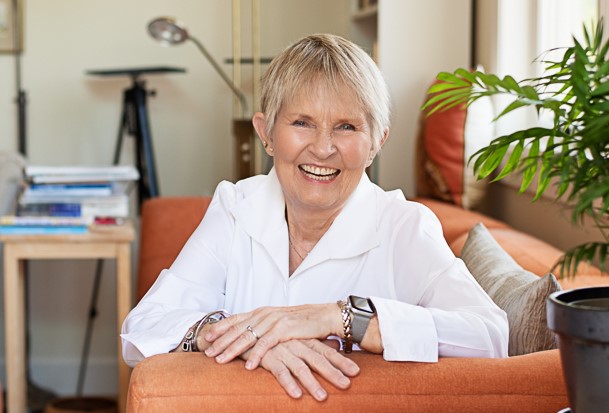Traveling solo gives you endless opportunities to people-watch. I recently took a trip by myself, and I became fascinated with the nature of conversation among groups of people.
At lunch one day, two couples were at the table next to me. There was enough space between us that I couldn’t hear what was being said, but the outstanding feature of their conversation was that it wasn’t a conversation at all. One of the women talked nonstop from the time I sat down until I was done with my meal, which was no short time since I was in Kauai, and everything there operates on Hawaii time… s-l-o-w. (It’s refreshing after you get used to it, but nerve-wracking until you do!)
Conversations
Earlier in the day I’d heard another conversation about all the things that were wrong with the accommodations, the food, the service, the chickens running everywhere. (If you haven’t been to Kauai, there are loose chickens everywhere. Why? It’s a long story.) All this in one of the most beautiful places on earth with day after day of perfect weather.
Why was I noticing this? The Prime Spark Membership Community is reading Sam Horn’s Talking on Eggshells, which references the Buddhist eightfold path and the concept of Right Speech.
Right Speech offers four questions to ask to check how we’re doing with our speech behavior. Before saying something, one can ask: Is it true? Is it kind? Is it helpful? Also, Is it necessary? As you might imagine, this is really hard, and I suspect these people I was observing in Kauai were not asking themselves those questions.
Women Over 55: What Would It Mean to Practice Right Speech?
One year I decided to focus on Right Speech for that year. I discovered two particularly interesting things. The first was that telling the truth is infinitely harder than not lying. Try it. You’ll see that there’s a profound difference. The second was that most speech I was involved in and overheard was, I thought, totally unnecessary. Now, I realize that—being quite an introvert—I’m probably way over-sensitive about what speech is necessary. In any case, that was what I discovered. Have fun with this. How much of what you say and hear is necessary?
I’ve been thinking about Right Speech alongside one of the things I’ve learned talking to women over 55. At this point I’ve interviewed almost eighty women over 50 on my podcast, and around fifty on the Prime Spark online radio show I had a couple years ago. The first question I always ask my guest is: “Do you experience getting older? If you do, what is that experience? And if you don’t, why do you think you don’t?” My guess is that at least 90 percent of the women say sure, they experience getting older physically—those annoying aches and pains—but other than that, they feel better than they ever have, more of who they were meant to be, less concerned about what others think, and more willing to say whatever they want to say.
I applaud and cheer them on, and yet is saying whatever you want to say Right Speech? I think and certainly hope it can be, but if I say whatever I want to, am I being kind? Helpful? Is what I say necessary?
How could we practice Right Speech?
A good beginning is to listen for what a group of your friends talks about when you get together. Often groups will spend a great deal of time talking about the people who aren’t there or are not part of the group. And many times this talk is not positive, which means it’s not kind. Sometimes we do this to bond with the group we’re with, but as someone once said, be sure to always be there or you know they will be talking about you!
Pay particular attention to your own contribution. Are you “piling on” with the negativity or are you trying to change the tone of the conversation? And if you try to change the tone, what’s the impact? I remember one evening I was sitting with a group at dinner, and it had been a litany of negativity. I asked if we could talk about something happy, which brought the conversation to a total standstill. We all just sat there and looked at each other.
Quick Reminders
Another common situation in a group is comment after comment complaining about the place, the food, the service, as I described above. Usually if you ask the complainer if they’ve talked to the people in charge or sent an email or written a note, they’ll say that they haven’t. Which means that the complaining isn’t helpful because no one who can do anything about the situation is there to learn about what’s wrong.
Most importantly, each of us needs to monitor her own speech because there is very little we can do about anyone else’s. And, anyway, asking oneself “Is what I’m saying true? Kind? Helpful? Necessary?” is a full-time job!
If you have suggestions for how, as we get older, we can feel liberated to say what we want to say while also practicing Right Speech, please let me know, and I’ll include them in the newsletter next month.
Good luck!
Learn More…
The Prime Spark Membership Community is designed for women 55 (or close) and older to support one another. We learn and grow together while furthering the mission of Prime Spark. Membership currently is closed. If you’re interested in joining, please send an email to [email protected] and ask to be placed on the waitlist.
We will launch the Mastermind for High Performance Women Over 50: What’s Next? later in October. Are you a senior woman who would like to know more about this? Please send an email to [email protected].
Sara Hart, PhD, is an author, speaker, and coach. She is leading the charge to change how older women are seen and treated in our society. She is the creator of Prime Spark, a movement to transform how women over 55 take responsibility for their futures. Sara is the author of three books. She also has over forty years of experience in leadership development, coaching, and building thinking environments. She was the director of training and development for a Fortune 100 company. Sara was also an executive director of the Institute for Women and Technology. To learn more about claiming your power as a senior woman, visit Prime Spark today!


Recent Comments